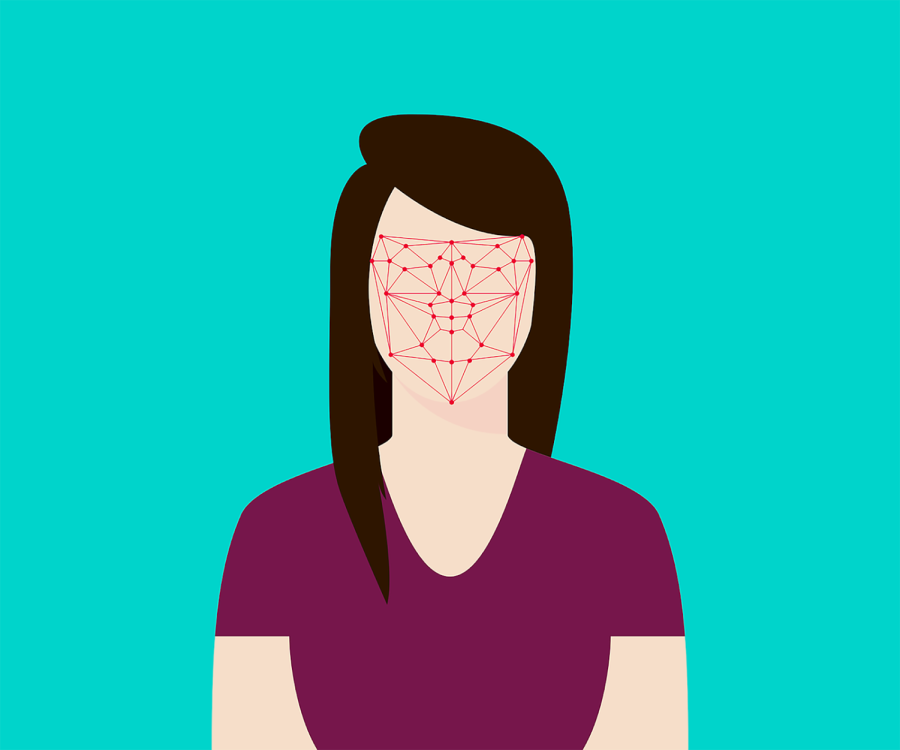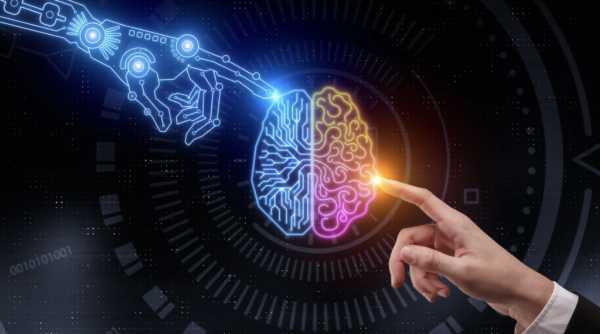Generation Z: Navigating a Tech-Desensitized World
The face identification feature using 3-D laser sensing to identify the user.
In today’s fast-paced and evolving technological landscape, Generation Z finds itself at the forefront of a digital revolution. Growing up in a world saturated with smartphones, voice assistants, and biometric identification, this generation has developed a unique relationship with technology.
Generation Z is witnessing a profound shift in how technology intertwines with personal identification. Fingerprint and face recognition, once featured in spy thrillers and science fiction, have become part of everyday life.“I remember when the face identification feature was introduced and everyone was so stoked,” junior Ani Cholakyan said. “Now, I use the feature subconsciously because I’m so used to it. It became a habit to look at my screen and expect it to unlock.”
The face ID feature takes an infrared snapshot of the user’s face every 5 seconds in order to adjust to the face. Whether one shaves a beard, puts on makeup, or dyes their hair, the face identification will unlock the phone due to the constant surveillance. Unlocking smartphones or accessing bank accounts with a simple touch or glance has become second nature.
Siri, Alexa, Google Home and other voice assistants have become omnipresent in Generation Z’s lives and their homes. These AI-powered virtual companions are now integrated into various devices, offering convenience and seamless interaction. From setting reminders and playing music to answering questions and controlling homes, voice assistants have become reliable digital companions for this generation.
When first introduced to the public, these assistants caused controversy. Questions arose about whether or not the government was monitoring and listening to citizens. People speculated that since these virtual assistants were voice operated, they might have been listening even when not activated. After these digital companions were present for years and proved to be helpful, they weren’t considered a threat. The increasing reliance on virtual voices led to a desensitization towards the human aspect of communication, affecting interpersonal skills and real-time interaction.
As Generation Z is introduced to cutting-edge technologies, concerns over security and privacy are raised. Many digital companies and their advertisements exploit the user’s biometric data, which is information on every individual’s physical trait. The three states which possess laws protecting the privacy of citizens’ biometric information are Washington, Illinois, and Texas. The application Tik Tok was sued by Illinois for violating these laws. Tik Tok paid over $9.2 million dollars to the Illinois state government which was later approved by the state federal judge.
Over 150 million Americans use the Tik Tok application and the numbers have only increased since the lawsuit. Tik Tok is one of the thousand applications which automatically collect information such as face prints, voice prints, keystroke patterns, etc. By gathering all this information, this application creates a personalized algorithm which pushes advertisements based on what the user enjoys.
This being said, the desensitization resulting from the normalization of these technologies may lead to an underestimation of the importance of safeguarding personal information. “I believe that our generation is incredibly comfortable with technology; to a point where we put our full and complete trust in it,” junior Talia Telimyan said. “Everyone should be aware of the risks that come with granting personal information online.”
Biometric data breaches, voice assistants recording private conversations, and data misuse are potential risks that this generation must be prepared to face. As society moves forward, it is crucial to maintain an awareness of the implications and potential risks associated with these modifications.

Interests/hobbies? I enjoy listening to music, playing volleyball, and debating.
Dream Destination? New York
In 20 years... I will be a famous attorney.
Favorite...













